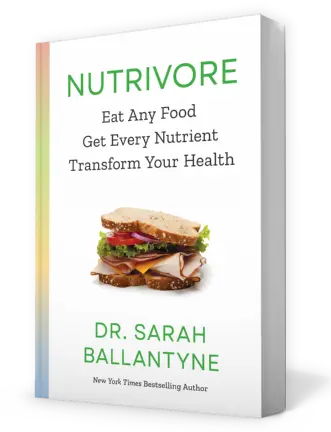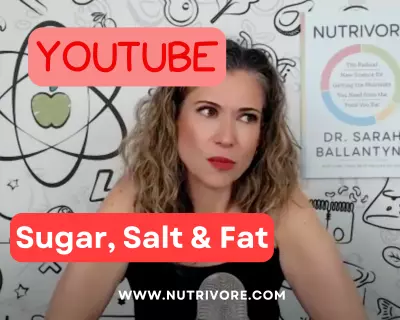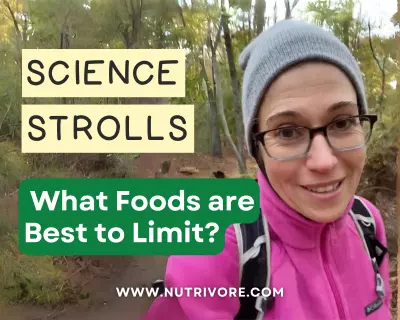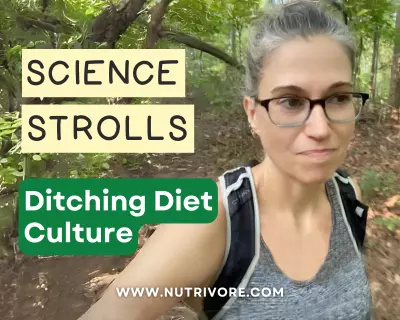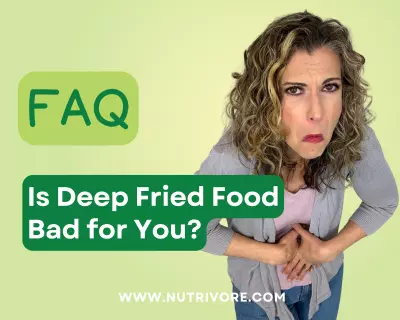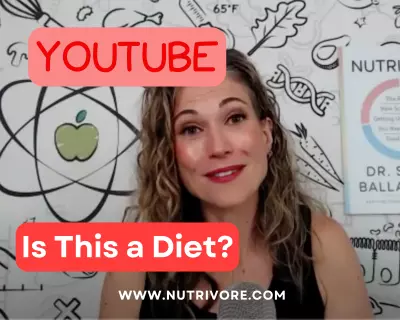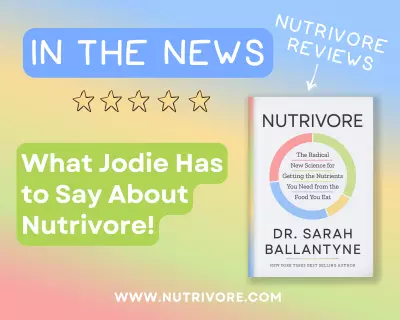Is Eating Burnt Food Unhealthy?
Producer Potts 0:21
Burnt food is my favorite thing. So here’s my question, am I always destroying the nutrients, or worse, causing health harm by being a bad cook on purpose? And is there a reason that some of us crave burnt food?
Dr. Sarah 0:36
Let’s break this down. So Browning is from a chemical type of chemical reaction called a maillard reaction, and it produces a variety of different types of chemicals that make all the things that make like the crispy bits on your roasted vegetables, or like the beautiful sear marks on your grilled meat, so delicious. Some of those compounds have been associated with cancer. So some of those compounds have been shown to be carcinogenic, but there’s lots of things that decrease those properties. So for example, adding vinegar or spices, literally just marinating your meat before grilling, it will decrease the production of them and spices and vegetables, especially cruciferous vegetables, so like brussel sprouts, broccoli, cauliflower, kale, have compounds that actually like, stop the like the way that it interacts with our biology, it interferes with that. So it actually reduces carcinogenicity . That is a long word that I can spell, but I don’t think I can say carcinogenicity. It basically makes it so that it’s not a problem from a cancer perspective, which is the concern. So grilling foods, yes, like, if you were eating a diet that was predominantly grilled, blackened foods, and it was like a lot of meat, not very much fruits and vegetables like that, does increase risk of cancer, especially GI cancers. However, marinating the meat or vegetables, adding spices, which, of course, makes it taste better, too, and then eating lots of vegetables, like, just having a high vegetable diet really, negates the concern, or at least most of the concern, from those compounds. So the signal is, overall, if you’re eating a healthy diet, it is not statistically significant, so it’s a very small effect. I’m wondering if I have, hang on, I did put the statistics in my book, and I’m feeling very proud of myself, because there has yet to be a thing that I have needed to look up that my book doesn’t have. So I’m feeling very proud of how comprehensive this is as a resource, while being incredibly readable and fun. So another, another check in the pro column for going to get my book Nutri bar. But the modest increased cancer risk is like two to 6% for highest consumers, depending on the study, and that is looking at both of like, the two main classes of compounds that have the highest like association with cancer and mechanistic like they’ve they’ve got studies where they give those compounds to animals and animals get cancer. So those are heterocyclic amines and polycyclic aromatic hydrocarbons. So the cool thing is, here’s the list of herbs that have been shown to help reduce the production of them. So turmeric, garlic, ginger, rosemary, cinnamon and chilies. All of those are delicious. That’s awesome, okay? And then cruciferous vegetables basically negate the effects once they’re in our bodies. So two to 6% in the grand scheme of things, that was not a big increased risk to begin with, and very easy marinating meat or adding spices and or both, and then eating especially cruciferous vegetables regularly, basically means that we don’t need to worry about that. What’s really fascinating is that also, like the mayor reaction produces some sugar compounds that are gut bacteria like. So we actually have some like bacteria that live in our gut microbiomes that really like Brown,
Producer Potts 4:43
oh, they’re, they’re happy with me. I’ll tell you that,
Dr. Sarah 4:47
That series of chemical reactions produces lots of different tasty compounds, only a few of which have been linked to cancer. And again, can be, uh. So the risk can be mitigated by eating more vegetables and seasoning and marinating meat and then other compounds that help to feed a healthy gut microbiome. So the craving part is kind of not related to it being tasty, like it is like when foods are really delicious to you, you will want to eat them more. But cravings mainly come out of associative learning. So it comes out of like, oh, maybe you had a lot of grilled foods like fun summer barbecues with your family when you were young. Or, you know, it was like a time in your life where you were, you know, really, like, happy and carefree and like that was a lot of the food that you were eating. Or maybe you always had grilled food on the same night that you had dessert. So you had that like association of like, something you really like with this grilled food, and that grilled food is now taken over as the positive association. So cravings tend to come out of associative learning, so a lot of that subconscious you might never be able to figure out, like, what was, what was the thing, that my body associated this flavor with a positive experience. But cravings are really complex, and there’s this sort of oversimplification that if you’re craving something, you must be deficient in something else. That is very rarely the case. Cravings tend to come more out of associations, and it can even be associations with life stress response and a comfort food. So it’s not even necessarily like, I like this, like, I had this food when I was really happy, it can be I had this food when I was really sad and the food made me feel better, right? Like, even other types of associations, yeah, okay, so, so cravings are really complex, uh, and definitely more like psychology related rather than like nutritional sciences related. So my my understanding is very surface, but, yeah, I would say there’s, there’s not a good other reason like biochemically, to crave burnt food
Producer Potts 7:07
Fascinating, yeah so some, some deep childhood memories need to, need to surface. I guess you hear that, Mom, it’s your fault.
Dr. Sarah 7:22
I know that producer pots also eats a lot of vegetables.


